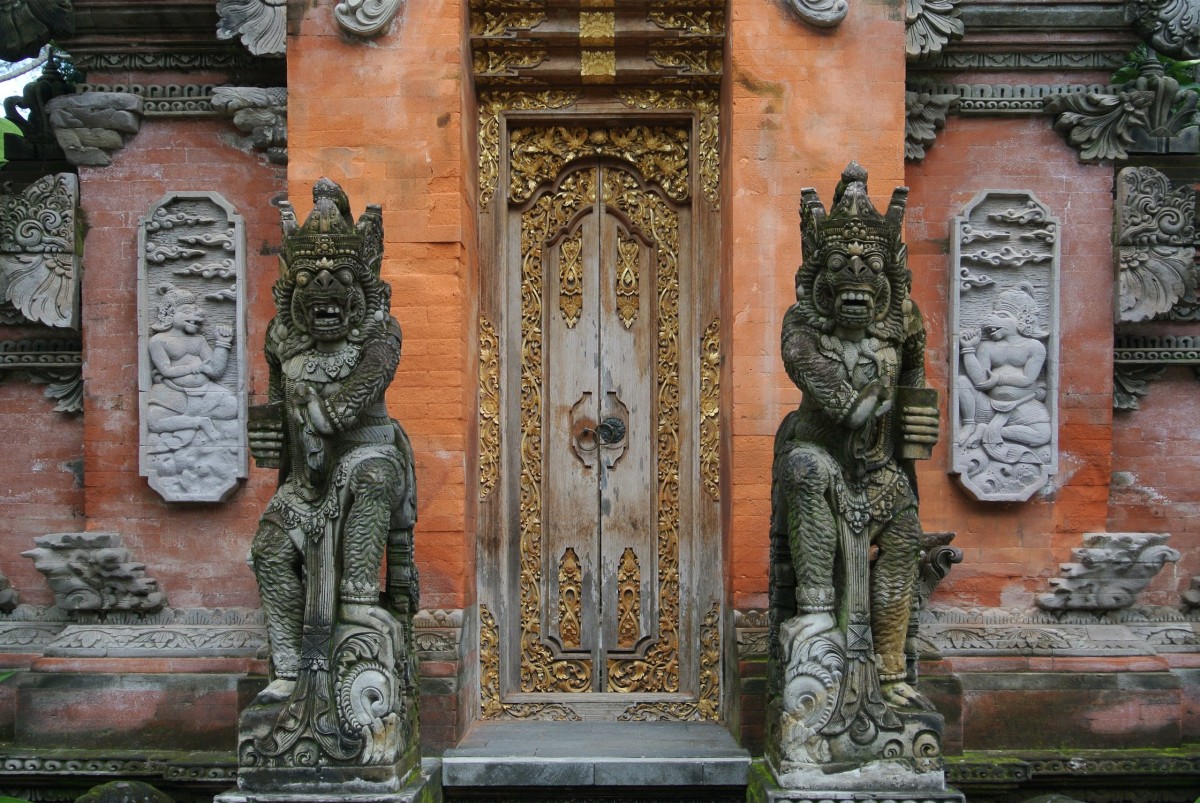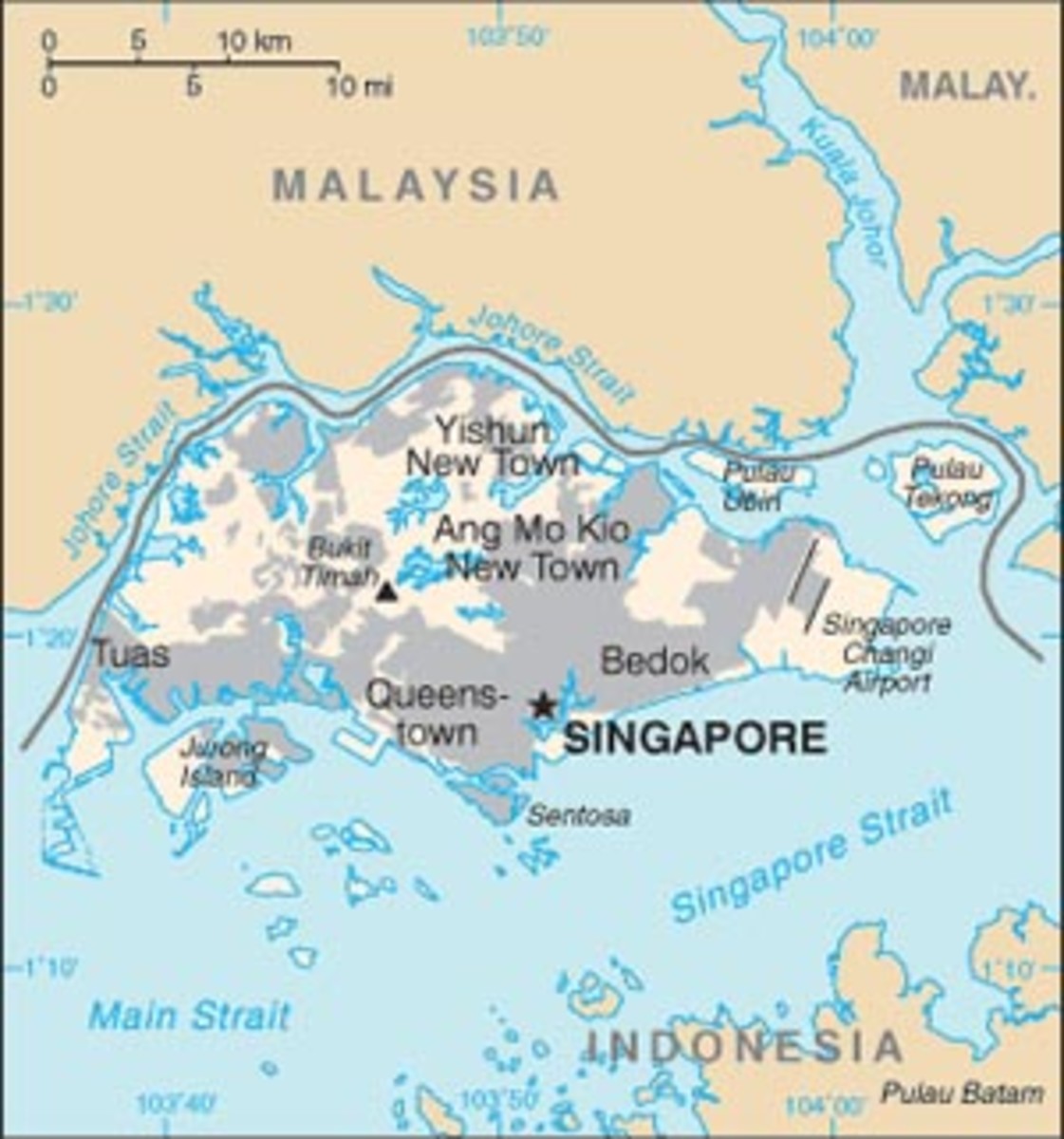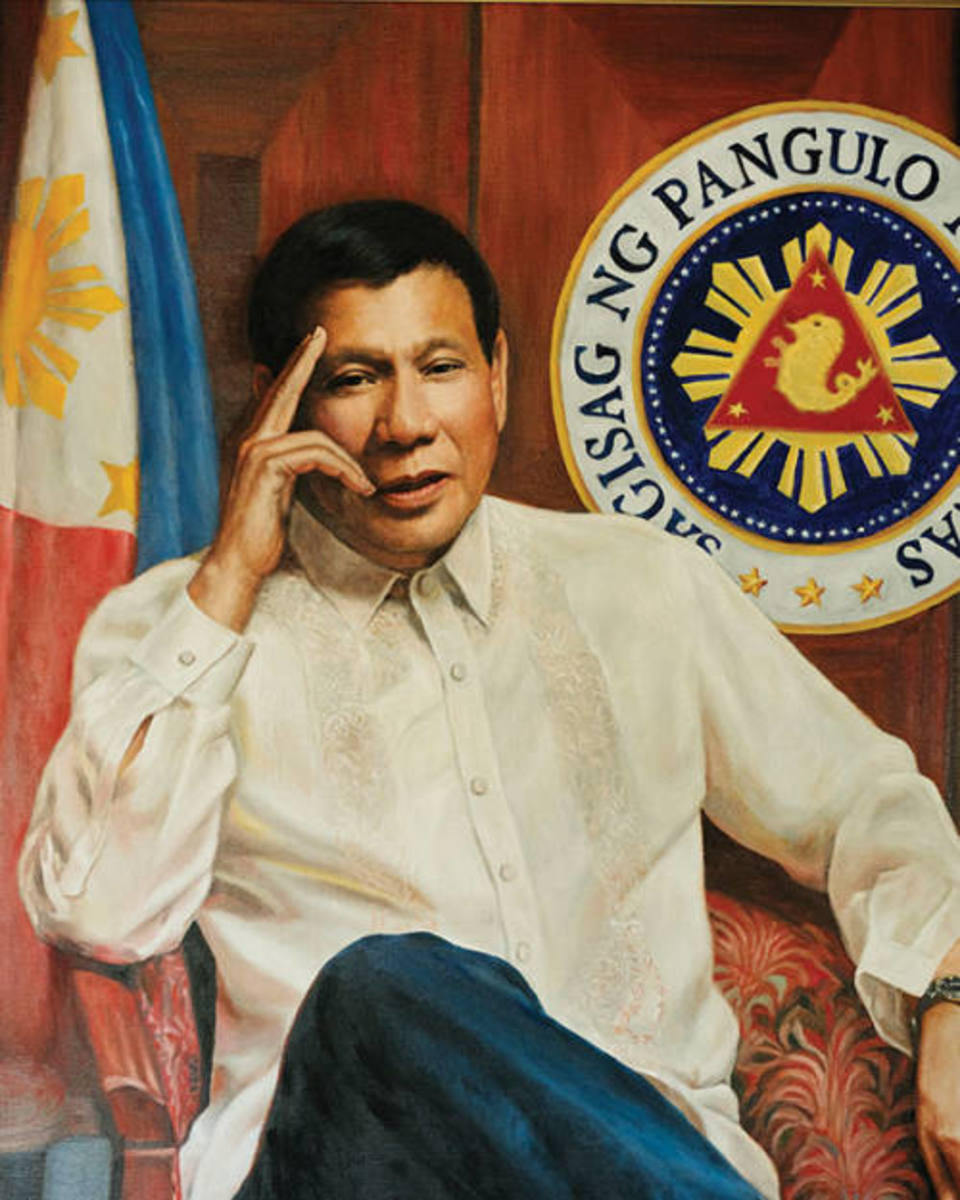Indonesia Political and Economic Outlook 2011-2015
Indonesian Flag
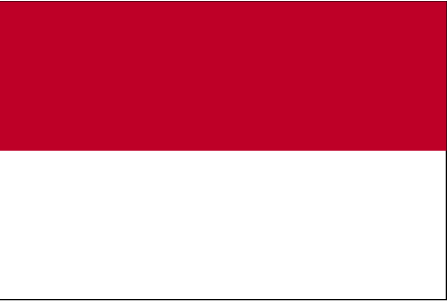
This hub examines the political and economic outlook of Indonesia for 2011-2014. Before one travels to or decides to do business in a foreign country like Indonesia, it is wise to learn a little about that country in terms of its cultural background, and its political and economic outlook in the near term. Through the country intelligence data obtained by the Economist Intelligence Unit (EIU), Country Watch, and CultureGrams, this hub introduces the potential traveler or global business leader to Indonesia and what they could expect in the near future concerning Indonesia's Political and Economic Outlook for 2011-2014.
EIU Overview of Indonesia Political and Economic Outlook for 2011-2015
According to a country intelligence report filed by the Economist Intelligence Unit for December 2010, the following are important highlights of Indonesia's political and economic outlook for 2011-2015:
- The president, Susilo Bambang Yudhoyono, has a strong mandate to pursue
his reformist policy agenda, having won re-election comfortably in July 2009,
but his reforms are encountering resistance from vested interests.
- Indonesia will elect a new president to succeed Mr Yudhoyono in 2014. A
requirement of the election law means that the next president is likely to be
the nominee of one of the country’s three main secular political parties.
- Bank Indonesia (BI, the central bank) will raise interest rates in early 2011.
There is a possibility that it will expand recently imposed capital controls
aimed at slowing the appreciation of the rupiah.
- The fiscal deficit will narrow in the forecast period, to the equivalent of 0.2%
of GDP in 2015, from 1.6% in 2009, owing partly to the inability of the civil
service to utilise fully the sums allocated to it for capital expenditure.
- The Economist Intelligence Unit forecasts that real GDP growth will accelerate
to an average of 6.3% a year in 2011-15, driven mainly by private consumption
and fixed investment.
- EIU researchers expect the current account to record an average surplus equivalent to
1.3% of GDP in 2011-15. The income account will remain in deficit, owing to the
repatriation of earnings by foreign-owned companies.
Indonesia Political Outlook 2011-2015
According to the Economist Intelligence Unit December 2010 report, Indonesia's political outlook for the immediate short-term seems relatively stable. Due to successfully leading his country through the global financial crisis of 2008-2009, President Yudhoyono retained the confidence of the voters and was re-elected for a second term in the 2009 election.
This result does not mean that Indonesia's political scene is without controversy. In order to retain his position, President Yudhoyono had to piece together a six-party coalition. However, one year into his second term, there are signs that the six-party coalition is not working well together and that they are divided on many reform issues.
Moreover, the first anniversary President Yudhoyono's second-term was marked by student-led protests due to a controversy involving conservative members of his coalition and the exit of Sri Mulyani Indrowati from her cabinet post. Ms. Mulyani, who now works with the World Bank, was one of Indonesia's most popular reformers. Evidence seems to indicate that Mulyani was ousted by her more conservative opponents including Mr. Aburizal Bakrie, a rich ethnic-Indonesian and managing chairman of the coalition government. Mr. Bakrie seemed to oppose Mulyani because she would not allow the stockmarket to be manipulated in his favor and she began to investigate alleged tax evasion by mining firms owned by the Bakrie family.
According to the EIU report, Yudhoyono's backing of the conservative members of his coalition does not bode well with his stated commitment to democratic reforms. If he continues to give way to those who vested interests like Mr. Bakrie "the prospects for a strengthening of democracy and an improvement in standards of government are likely to diminish." If however President Yudhoyono and other reformers continue to confront vested interests like Mr. Bakrie then there is a real possibility that conflict could erupt within the ruling coalition.
Indonesia Economic Outlook for 2011-2015
According to the EIU's Indonesia country report filed for December 2010, Indonesia's economy was affected less severely by the global recession than other neighboring Asian countries. This was mostly due to the fact that exports make up a relatively small portion of the country's economy.
Due to less need to recover from the global economic downturn, the EIU forecastors reported that Indonesia's real GDP accelerated to 5.9% for the first three quarters of 2010 and believed the whole year figure would also come in at 5.9%. Beyond, 2010 EIU forecasts real GDP growth to be around 6% in 2011, 6.4% in 2012; and an estimated 63% from 2013 to 2015. After an increased demand of various commodities by China in 2010, Indonesia exports are expected to slow in 2011, but should expand by an annual rate of 8% from 2012-2015.
EIU researchers reported the following downside risks to their forecast including the possibility of fiscal austerity programs leading to a sharper slowdown in global growth than expected and loose monetary policy stance of Western central banks like the U.S. Federal Reserve which has led to heavy flows of capital into Asian countries. These heavy flows led to wide fears that asset price bubbles could develop in the Asian countries because such bubbles create risks particularly if assets are used to back higher levels of borrowing.
According to the EIU report, Indonesia was one of the recipients of strong flows of foreign finance in 2010 and will probably continue to attract funds in 2011. However, Indonesian companies and households are not highly leveraged and so the price asset bubble may be less of a factor and a period of mild borrowing could work to further stimulate the economy in the near future. This would be particularly helpful if the funds were spent on infrastructure improvements.
Map of Indonesia
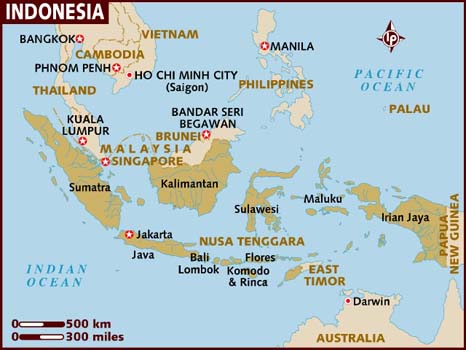
Indonesia Key Data
CountryWatch highlighted the following fun facts about Indonesia
Key Data
Region:
Asia
Population:
231,749,876
Area Total:
1,919,440km2
Area Land:
1,826,440km2
Coast Line:
54,716km
Capital:
Jakarta
Climate:
Tropical with hot and humid conditions; more moderate conditions in highlands
Languages:
Bahasa Indonesian (Official)
English
Dutch
local dialects including Javanese
Currency:
Indonesian Rupiah
Holiday:
Independence Day is 17 August (1945), Kartini Day is 21 April
Notable Cities
City Population Estimated
Jakarta 8,431,302 2010
Surabaya 2,328,055 2010
Bekasi 1,774,340 2010
Average Daily Temperature
January:
25.80°C / 78.40°F
July:
26.30°C / 79.30°F
Annual Rainfall:
1821mm / 71.7"
Indonesian Cultural Dance and Art
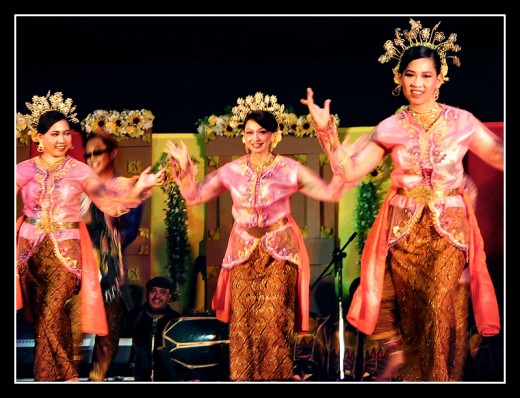
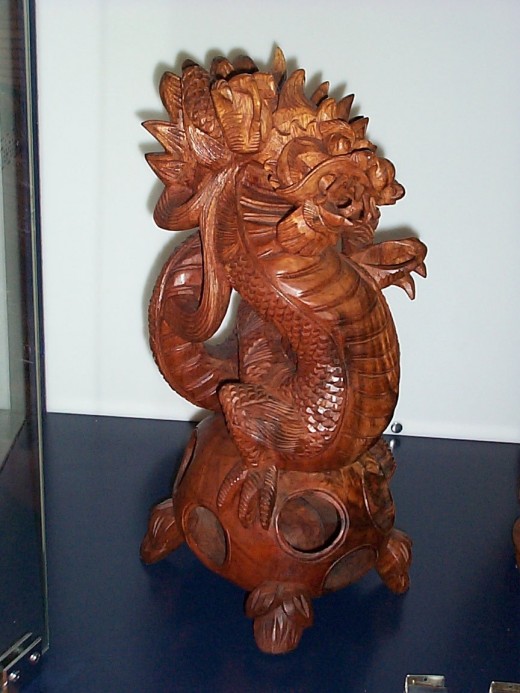
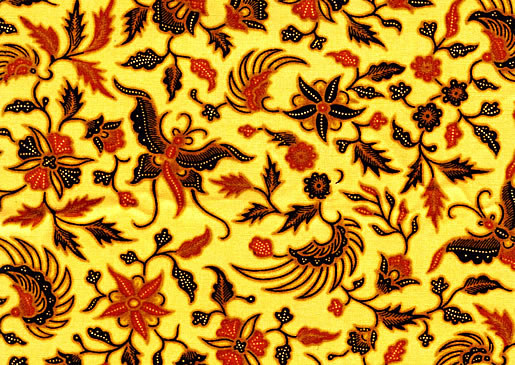
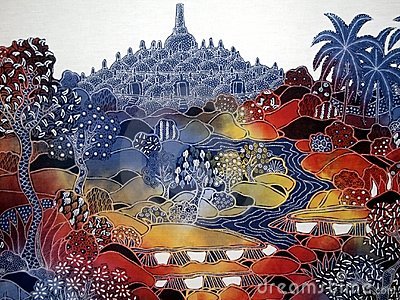
Indonesia Brief History
Country Watch also provided the following synopsis of Indonesian history:
The Indonesian archipelago is the largest island complex in the world, stretching for more than 3,000 miles east to west. During the first millennium C.E., the islands of Java and Sumatra had developed into a society of advanced civilization, with goods being shipped overseas and navigable rivers bringing the Indonesian hinterland into touch with distant markets.
From the seventh to 14th centuries, Buddhism flourished on the island of Sumatra. In eastern Java, Hinduism prevailed in the 14th century, and in 1364, the Hindu empire conquered most of what is now modern Indonesia and much of the Malay Archipelago. Islam arrived during the 12th century and dominated Hinduism in Java and Sumatra by the end of the 16th century. In the 16th and 17th centuries, both Christian and Islamic proselytizing took place in the eastern archipelago, and both religions have large communities on the islands today. On Bali, Hinduism still endures.
During the 17th century, Indonesia gradually slipped under the control of the Netherlands, except for East Timor, which remained controlled by Portugal until 1975. Under Dutch rule for 300 years, Indonesia was developed into one of the Netherlands' richest colonies in the world.
In early 20th century, an independence movement began in Indonesia, led by young professionals and students, some of whom were educated in the Netherlands. A small group of Indonesians led by independence leaders Sukarno and Mohammad Hatta established the Republic of Indonesia on Aug. 17, 1945, three days after Japanese who had occupied the nation in World War II surrendered to Allied forces. The Dutch were struggling to regain control of Indonesia but were met with strong resistance from the Indonesians.
In 1949, after four years of war and negotiations, the hostilities between the Netherlands and Indonesia ended, with the Dutch transferring sovereignty to the federal Indonesian government. In 1950, Indonesia became a member of the United Nations. After its independence, Indonesia adopted a new constitution providing for a parliamentary system of government, however, in 1959, the 1945 constitution was revived allowing for borad presidential powers. "Mostly free" elections would not be held until the late 1990s. Indonesia's territorial integrity -- a legacy of the country's history and colonial relationships -- would become a significant issue in the years following independence.
At the time of independence, the western half of New Guinea in Indonesia remained under control of the Netherlands, and the region was permitted some measure of self-government and independence. To gain control of the region, Indonesia negotiated with the Netherlands but failed, then fought the Dutch in 1961. In August 1962, an agreement was reached between Indonesia and the Netherlands for Indonesia to assume administrative responsibility for Irian Jaya on May 1, 1963. In 1969, under United Nations supervision, the Indonesian government conducted an "Act of Free Choice" in Irian Jaya, and 1,025 Irianese representatives of local councils agreed to remain a part of Indonesia. After that, the United Nations General Assembly confirmed the transfer of sovereignty of Irian Jaya to Indonesia, followed with small-scale guerrilla activity opposing the Indonesian control of the region. Since the late 1990s, there have been more explicit expressions within Irian Jaya of desire for its independence.
Meanwhile, from 1958, Indonesia has seen rebellions on Sumatra, Sulawesi, West Java and other islands. Conflict between the authorities in Jakarta and nationalists in Aceh were involved in a conflict lasting over 30 years. Several peace deals aimed at ending the conflict fell apart. In 2005, the Indonesian government and the rebels in Aceh forged their most recent peace agreement with hopes that it charted the course for lasting peace after 30 years of conflict.
For its part, East Timor had been a Portuguese colony from 1524 to 1975. In 1976, Indonesia declared East Timor its 27th province. Following the declaration, there was small-scale guerrilla activity in the region by those opposing the Indonesian rule, however, Indonesian dominion prevailed. After United Nations involvement in January 1999, Indonesia agreed to allow the people of East Timor to choose between autonomy and independence through a direct ballot. In August 1999, the East Timorese voted overwhelmingly for independence. A bloody conflict, which included the devastation of the East Tmorese capital city of Dili followed before United Nations intervention facilitated East Timor's passage into sovereign and independent status, separate from the Republic of Indonesia.
Indonesia - Religion
According to CultureGrams, Indonesia is home to the world's largest Muslim population; the majority consider themselves only moderately religious accounting for about 86 percentthe country's population. However, in practice, Indonesians have largely adapted the religion to their culture—Hinduism, Buddhism, and animism have influenced beliefs and practices. Muslims believe the Qur'an (Koran) contains the word of Allah (God) as revealed to the prophet Muhammad. Devout Muslims express their faith through the Five Pillars of Islam: professing the name of Allah and Muhammad as his prophet; praying five times daily; fasting during the holy month of Ramadan; donating to the poor; and making a pilgrimage to Mecca, Saudi Arabia, if they can afford it.
Besides the Muslims, about 9% of the rest of the population consider themselves Christians and another 2% adhere to Hinduism.


